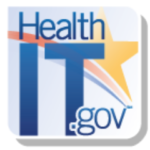 There is one week left to Apply for Grants to Help Advance Interoperability. The deadline for applications is Monday April 6th at 11:59pm EST.
There is one week left to Apply for Grants to Help Advance Interoperability. The deadline for applications is Monday April 6th at 11:59pm EST.
You can get more information at HealthIt.gov on each of the three grants:
- Advance Interoperable Health Information Technology Services to Support Health Information Exchange – This two-year grant program will support 10 to 12 states, territories, or state designated entities that leverage investments and lessons learned to advance the standardized, secure, and interoperable movement of health information across organizations, vendors, and geographic boundaries. A total of $28 million will be made available through this ONC program. Organizations will be required to network and share information.
- Workforce Training to Educate Health Care Professionals in Health Information Technology – Interested in training health care workers on topics like population health, care coordination, payment models that support new care delivery and payment Models, and Value Based Care? This program improves on the need to educate and cross-train individuals pursuing careers in health IT. This program will update training materials from the original Workforce Curriculum Development Program and train health care workers to use new health information technologies in a variety of settings: team-based care environment, long-term care facilities, patient-centered medical homes, accountable care organizations, hospitals and clinics.
- Community Health Peer Learning Program – The new Community Health Peer Learning Program will bring communities together to work in partnership with national experts, local technical experts, consumers, stakeholders, and ONC to facilitate shared community learning and problem solving through a collaborative learning program. Participant communities will be required to identify an impactful, measurable, and actionable work plan to improve the use of health information to achieve community and population health. Community Health Peer Learning Program participants will identify data solutions, accelerate local progress, disseminate best practices and learning guides, and help inform national strategy around population health challenges.
